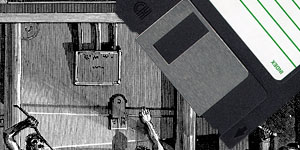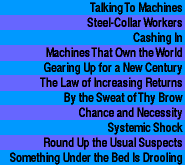


By the Sweat of Thy Brow
Executives who look to cars or soap or toothpaste as their model of how their information company should run are finding it hard to adjust to economic reality in the 1990s. But they do learn eventually---or they die and get replaced.For example, continuing to place investors first in the economic hierarchy can lead to shortsighted financial cannibalism. Today, capital matters less and less to economic development in advanced countries. Of course, it will always remain an important risk softener and task simplifier; being rich will always have its perks. In an environment of continuous change, however, being knowledgeable is often better. In such a setting, capital and equipment are less important than almost anything else, because of plummeting equipment prices and the equipment's ever increasing power, flexibility, and reliability. Equipment will be obsolete in three years anyway. Energy and raw materials don't matter as much either, as each new equipment generation uses exponentially less of both. So, contrary to the prevailing wisdom, what matters most today in an information company is labor.
This may seem like a strange thing to say in an era of widespread job loss. But let's look at the history. In the agrarian age, nothing could be done without human labor. But, because it was so easy to replace, labor was devalued. It doesn't take much training to hoe a garden. Having the land to put the garden in was far more important. That all changed with the invention of the steam engine and the dawn of the industrial revolution. Human muscle became less essential because cheap machines could replace it, and extensive training in using the machines became more essential.
The pendulum has now swung so far, however, that labor is once again more important than anything else. Despite today's enormous job losses, the most important asset an information company can have is a highly trained, computer-literate staff that interacts effectively. Such a staff is the best source of ideas on ways to navigate future tumultuous changes. Further, while competing firms can quickly reverse-engineer and copy systems, technology, and products, they cannot easily copy a stimulated, well-coordinated, and productive staff. That fact applies to publishers as well as biotechnologists, to drug companies as well as telephone companies. Paradoxically, because we can no longer change faster than our technology, a productive and knowledgeable staff has become the linchpin of business success as we head into the twenty-first century.